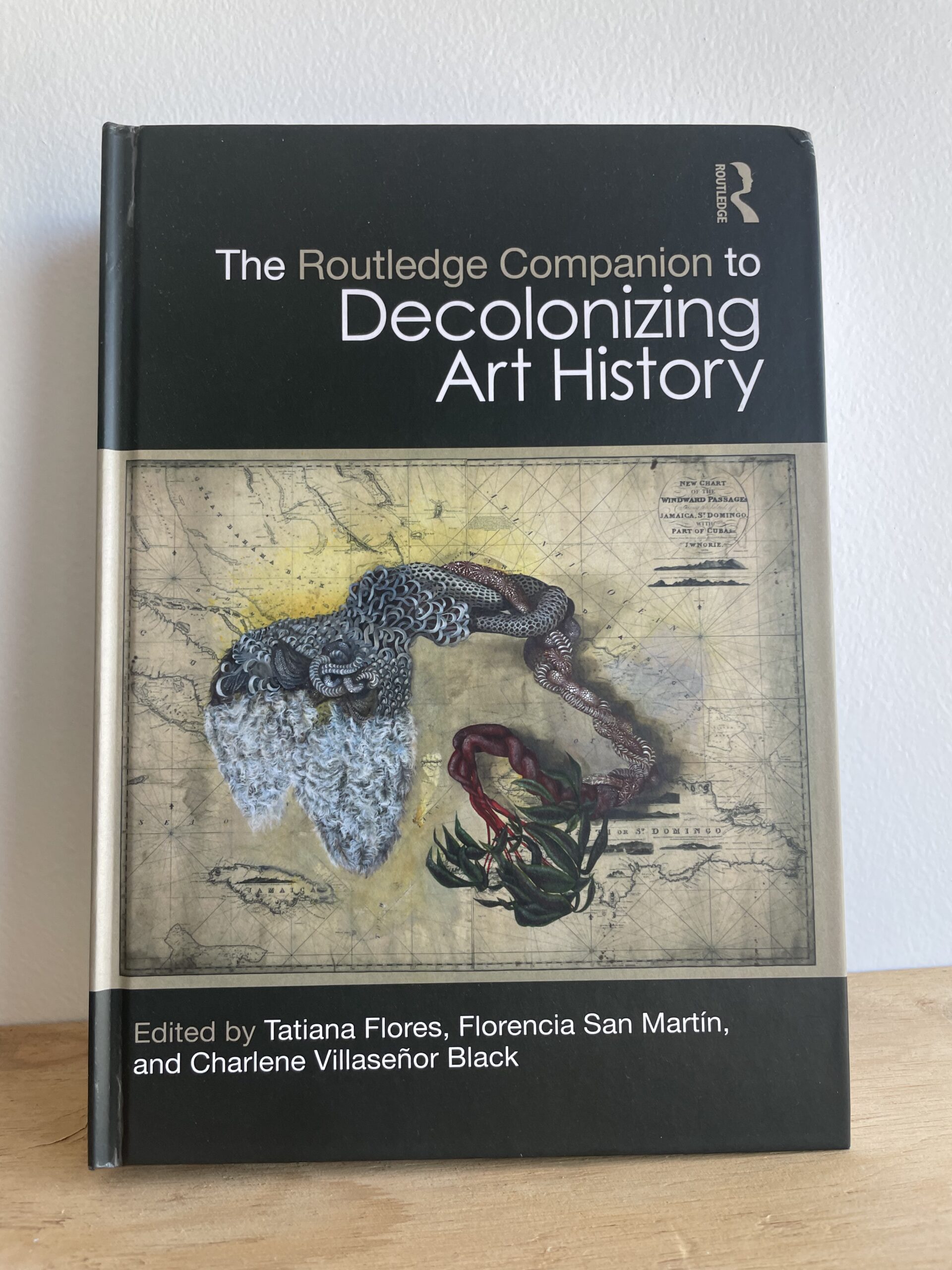Pedagogies of Place: Listening and Learning in the Margins
08 September 2024
Chapter:
Pedagogies of Place: Listening and Learning in the Margins. K de Souza. The Routledge Companion to Decolonizing Art History, 218-227, 2023
https://www.taylorfrancis.com/chapters/edit/10.4324/9781003152262-19/pedagogies-place-keg-de-souza
Flores, T., San Martín, F., & Villaseñor Black, C. (Eds.). (2023). The Routledge Companion to Decolonizing Art History (1st ed.). Routledge. https://doi.org/10.4324/9781003152262
‘This companion is the first global, comprehensive text to explicate, theorize, and propose decolonial methodologies for art historians, museum professionals, artists, and other visual culture scholars, teachers, and practitioners.
Art history as a discipline and its corollary institutions – the museum, the art market – are not only products of colonial legacies but active agents in the consolidation of empire and the construction of the West. The Routledge Companion to Decolonizing Art History joins the growing critical discourse around the decolonial through an assessment of how art history may be rethought and mobilized in the service of justice – racial, gender, social, environmental, restorative, and more. This book draws attention to the work of artists, art historians, and scholars in related fields who have been engaging with disrupting master narratives and forging new directions, often within a hostile academy or an indifferent art world. The volume unpacks the assumptions projected onto objects of art and visual culture and the discourse that contains them. It equally addresses the manifold complexities around representation as visual and discursive praxis through a range of epistemologies and metaphors originated outside or against the logic of modernity. This companion is organized into four thematic sections: Being and Doing, Learning and Listening, Sensing and Seeing, and Living and Loving.
The book will be of interest to scholars working in art history, visual culture, museum studies, race and ethnic studies, cultural studies, disability studies, and women’s, gender, and sexuality studies.’

